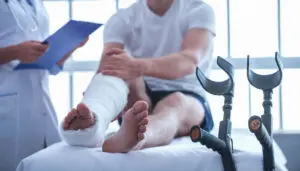What Is a Duty of Care?
A Duty of Care is the obligation to act with care and prudence toward others and the public, as a reasonable person would in similar circumstances. Failure to meet this standard may lead to negligence claims and subsequent damages. This concept is fundamental in various fields, including law, medicine, and business, where individuals or professionals are expected to act in a way that prevents foreseeable harm to others. Essentially, it mandates that one must exercise caution and consideration to avoid causing harm or injury to others.
According to the ruling in Donoghue v Stevenson (1932), “You must take reasonable care to avoid acts or omissions which you can reasonably foresee would be likely to injure your neighbor.” This principle has since become a cornerstone in tort law, influencing how negligence cases are determined.
In practice, duty of care requires individuals to anticipate risks that their actions or inactions might pose to others and take reasonable steps to mitigate those risks. For instance, in healthcare, doctors owe a duty of care to their patients to provide treatment that meets accepted medical standards, ensuring patient safety and well-being. Understanding the duty of care helps ensure that individuals and organizations prioritize the well-being of others, thereby reducing the occurrence of preventable harm.
More information about Duty of Care
Jim Thorpe Personal Injury Lawyer
After suffering an injury in Jim Thorpe, Pennsylvania, the situation can feel overwhelming—mounting medical bills, lost income, and the challenging physical recovery process can quickly become all-consuming. For over 65 years, Munley Law has been protecting the rights of injured victims throughout Pennsylvania. Our Jim Thorpe personal injury attorneys provide compassionate, expert legal representation so you can focus solely on healing. We handle every aspect of your case—from thorough case evaluation and insurance negotiations to calculating fair compensation and representing your interests in court if necessary. Don’t let personal injury law add to your burden. With Munley Law by your side, you can rest assured your rights remain protected while you prioritize what matters most: your recovery.
Types of Personal Injury Cases in Jim Thorpe We Handle
 Personal injury cases come in many forms. Here are some of the most common types that our personal injury lawyers serving Jim Thorpe might handle:
Personal injury cases come in many forms. Here are some of the most common types that our personal injury lawyers serving Jim Thorpe might handle:
Car accidents
Car accidents are among the most common causes of personal injury claims. […]
Read MoreMore information about Duty of Care
Greensburg Personal Injury Lawyer
When the negligent actions of another person cause an injury, you need a Greensburg personal injury lawyer looking out for your best interests. Whether you were harmed in an auto accident, by medical negligence, or from an unsafe property, Munley Law can help.
Our local personal injury lawyers have Pennsylvania roots and a proven track record of securing maximum compensation for injured clients. For 65 years, our family-owned law firm has helped injury victims recover financial compensation for medical bills, lost wages, and pain and suffering. A serious injury takes a physical, emotional, and financial toll on you and your family. Our experienced attorneys work on a contingency fee basis, meaning you don’t pay anything until we make a recovery in your favor.
Our law firm has recovered millions of dollars in settlements and verdicts for clients throughout Westmoreland County and surrounding areas.. Contact Munley Law today for your free consultation to discuss how our personal injury attorneys can help you get the compensation you deserve. […]
Read MoreMore information about Duty of Care
Cranberry Township Premises Liability Lawyer
Premises liability isn’t a term many people know, but if you’ve been injured on someone else’s property in Cranberry Township, understanding the claims process will be extremely important. Whether you were hurt at Cranberry Mall, a local restaurant, or someone’s home, Pennsylvania property owners have a legal duty to keep their premises safe for visitors.
Our Cranberry Township premises liability lawyers bring 65 years of experience handling premises liability cases in Butler County. We thoroughly investigate your accident, gather evidence of negligence, and build a strong case while you focus on recovery. Our attorneys have secured millions in settlements and verdicts for clients injured on dangerous properties.
Contact Munley Law today for a free consultation with our Cranberry Township personal injury attorneys. We don’t charge any fees unless we win your case.
Common Types of Premises Liability Claims in Cranberry Township

Not every accident leads to a premises liability claim—sometimes things just happen. […]
More information about Duty of Care
Sunbury Personal Injury Lawyer
After being involved in an accident, your life can turn upside down. With mounting medical expenses, lost wages, property damage, and the emotional distress you’ve been through, you may need some help taking legal action. This is where Munley Law comes in. For more than 60 years, our Sunbury personal injury lawyers have helped injury victims recover compensation for their catastrophic injuries.
where Munley Law comes in. For more than 60 years, our Sunbury personal injury lawyers have helped injury victims recover compensation for their catastrophic injuries.
If you or a loved one were hurt due to someone else’s negligence and are looking for personal injury lawyers serving Sunbury, call the Northumberland County personal injury law firm of Munley Law to begin case evaluations.
Personal Injury Cases We Handle in Sunbury
Munley Law will take on the insurance company and liable parties for your personal injury claims. Below are the personal injury practice areas we commonly see.
Car Accidents
In 2022, 660 car accidents were reported in Northumberland County. […]
Read MoreMore information about Duty of Care
Can I Sue for Chemical Burns?
Chemical burns can occur anywhere — in workplaces, homes, or public spaces — often leaving victims with severe injuries that require extensive medical treatment and time away from work. If you’ve suffered chemical burns in Pennsylvania, you have the right to pursue legal action against those responsible for your injuries.
 The physical, emotional, and financial toll of a chemical burn injury can be overwhelming. Beyond the immediate medical costs, many victims face long-term rehabilitation, lost income, and permanent scarring. Pennsylvania law provides several paths to compensation, including personal injury claims, workers’ compensation, and product liability lawsuits.
The physical, emotional, and financial toll of a chemical burn injury can be overwhelming. Beyond the immediate medical costs, many victims face long-term rehabilitation, lost income, and permanent scarring. Pennsylvania law provides several paths to compensation, including personal injury claims, workers’ compensation, and product liability lawsuits.
At Munley Law, our personal injury attorneys have extensive experience handling chemical burn cases throughout Pennsylvania. We understand the complexity of these cases and work to identify all potentially liable parties to maximize your compensation.
Contact our law firm today for a free consultation to discuss your chemical burn injury case. […]
Read More








